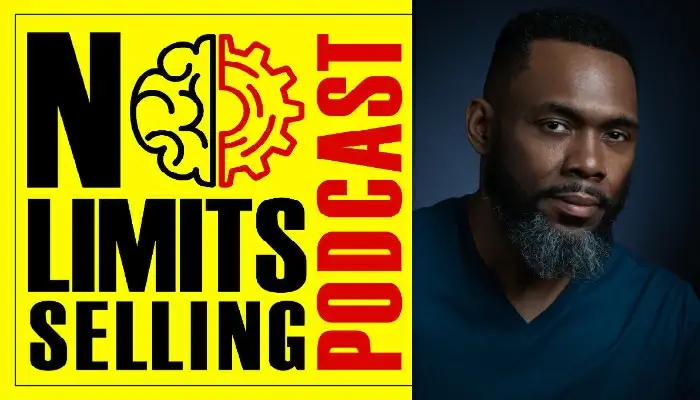
Tips to Capture Confidence and Conquer Camera Anxiety
Lamonte Gwynn is the owner of Lamonte G Photography. He believes that being photogenic starts within. He uses his branded Expression Coaching™ approach to help his clients capture and create images that reveal their inner photogenic magnetism. In this episode, he shares with us tips to capture the confidence and conquer camera anxiety.
Over the past 13 years, Lamonte has helped hundreds of people step into their confidence to attract their target audience. Whether it’s photos or videos, Lamonte is a master at bringing out the very best in his clients.

Contact Lamonte:
[EDITOR’S NOTE: This podcast is sponsored by No Limits Selling. It is a fun, fast-paced podcast that delivers hard-fought business advice that you can implement today to improve your sales and performance]
Interested In Our Real Estate Coaching Services? Explore Our Website: Link
Feeling Not Well Today? You Can Use Our Mindset Boosters App To amp Up Your Mood: Link
Find us on Social Media:
LinkedIn | Facebook community | Instagram
Like what do you listen to? Subscribe to our podcast!
Ready to become fearless? We can help you become fearless in 60 days so you accomplish more in your career Schedule A 15 min Call with Umar
Summary
Introduction: The Magic of Photography
In a riveting episode of the No Limits Selling Podcast, host Umar Hameed invites Lamonte Gwynn, a renowned photographer, to delve into the world of self-image and photography. The conversation kicks off with a discussion about the power of photographs and the importance of feeling comfortable in one's skin. Gwynn, who has made a name for himself by capturing the essence of his subjects, shares his journey from being a regular photographer to someone who can capture confidence and magic in his shots.
The Value of Self-Worth
The conversation takes an interesting turn when Gwynn shares a story about a proposal he submitted for a retreat. He was told he didn't charge enough, indicating that he didn't value his work enough. This incident led to a realization of the importance of self-worth, not just in terms of monetary value, but also in terms of the value one brings to their work.
Overcoming the Fear of the Camera
Gwynn then delves into the fear that many people have when they are in front of the camera. He shares his observations from a retreat where he was called in to do video work. He noticed that many people were afraid of being in front of the camera, a fear that he believes stems from the pressure of perfection and the comparison with TV personalities.
The Power of Belief
The podcast takes a deeper dive into the psychology of self-image as Gwynn discusses the concept of limiting beliefs. He shares his technique of asking people about their current beliefs about recording and what they would like to believe instead. This pre-work, as Gwynn calls it, helps people to focus on their strengths and overcome their fears.
Grounding Exercise and Book Recommendation
Toward the end of the podcast, Gwynn shares a grounding exercise that he uses to build confidence. He also recommends the book "The Power of The Subconscious Mind" by Joseph Murphy. He shares his practice of writing letters to his subconscious mind and placing them under his pillow, a practice that has yielded amazing results for him.
This enlightening conversation between Umar Hameed and Lamonte Gwynn offers valuable insights into the power of self-image, the importance of self-worth, and the techniques to overcome fear and limiting beliefs. It's a must-listen for anyone seeking to understand the power of their subconscious mind and the impact of self-image on their life.
Questions & Answers
Who are the participants in this podcast?
What is the main topic of the podcast?
What was Lamonte Gwynn's journey as a photographer?
What incident led Lamonte Gwynn to realize the importance of self-worth?
How does Lamonte Gwynn help people overcome their fear of the camera?
What grounding exercise does Lamonte Gwynn recommend for building confidence?
What book does Lamonte Gwynn recommend and why?
Don’t miss this opportunity to transform your real estate career with one-on-one coaching. As an experienced real estate coach, I, Umar Hameed, am dedicated to helping you unlock your full potential and achieve your real estate goals. To learn more about who am I and my clients ↓
If you’re ready to take the next step, book an appointment with me today and begin your journey toward success in the real estate industry.
